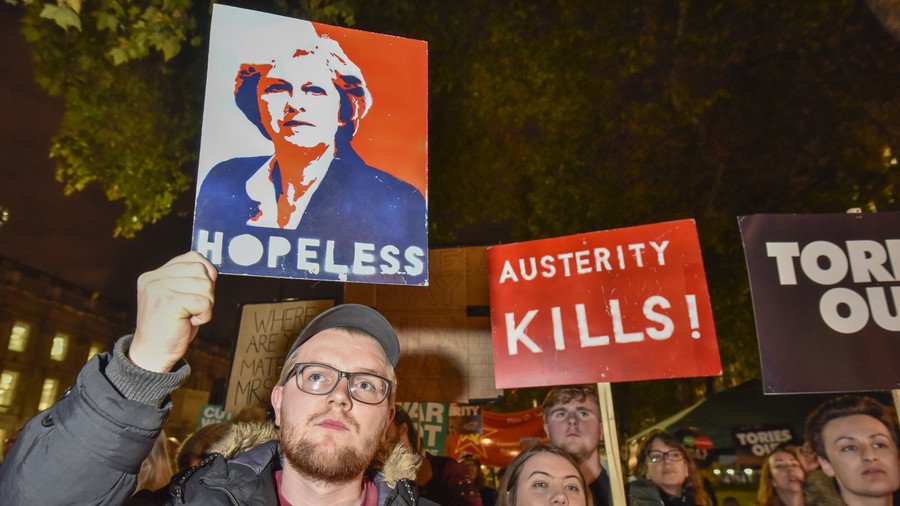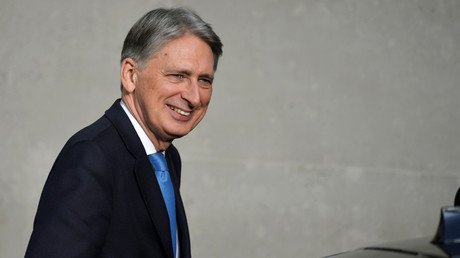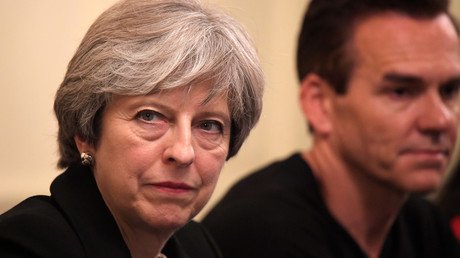Pleasing none of the people: Hammond delivers biggest budget in a generation

As Chancellor Philip Hammond delivered one of the most anticipated budgets in recent memory, he will have done well to remember the adage: you can’t please all of the people all of the time.
With a Brexit divorce bill growing by the day, an increasing deficit and a public jaded by austerity, Hammond faces the daunting prospect of being Britain’s most unpopular person come Wednesday noon.
Austerity
When allies begin to err, it is usually a sign of trouble. Tory MP and close ally of former-PM David Cameron, Nick Bowles hit the headlines recently when he called for the government to halt austerity, writing that the Tories would boost their fortunes if they “stop trying to cut [the deficit] any further.” Bowles’ statement suggested a sea change; after seven years of austerity the government is facing dissention in its own ranks.
A more customary source of anti-austerity sentiment has been the People’s Assembly Against Austerity, a pressure group formed to tackle government cuts. The national director of the organization, Sam Fairbairn, told RT that despite Bowles’ statement: “It’s inconceivable that this Government will break with austerity.” The only way the government would “slightly ease off spending” cuts was, according to Fairbairn, because they are “under huge public pressure and are incredibly weak.” Almost 13 million people voted for the Labour Party’s anti-austerity platform in June. Shadow Chancellor John McDonnell hailed the result as a sign that the public are wearying of austerity and clamoring for an alternative.
The budget has come at an awkward time for Hammond. On Tuesday it was announced that the UK deficit jumped to £8bn in October, up from £7.56bn in the same month last year. A shock to the chancellor who aims to eliminate the deficit altogether by 2025.
Professor of economics at Leeds University, David Spencer, warned that if the government adheres to “deficit reduction” those “most dependent on publicly-funded services and welfare benefits, namely the working poor and the unemployed” will be the most affected.”
“The false narrative that sees austerity as the only route to growth should be abandoned. It should be replaced with a different policy approach that gives priority to the increase in investment and the building of an economy that delivers for the majority, not just the few,” Spencer told RT, adding “The rule of regressive ideology over sound economics will then block the necessary and long overdue reform of austerity policies.”
Dr. Lisa Mckenzie, sociology fellow at the London School of Economics, believes that any break with austerity announced by Hammond would only be “significant symbolically,” adding that “the UK has serious problems that won’t be fixed in one budget.” Chief among those is, according to Mckenzie, the UK’s perpetual housing crisis.
Housing
Calls for the UK to build more housing has been ever-present in British politics since the Blair government. Proceeding prime ministers have all pledged to build more and then failed to do so; Cameron’s 2014 flagship program to build 200,000 homes for first-time buyers is yet to yield a single construction, according to reporting by The Independent.
Echoing Bowles’ sentiment, Secretary of State for Communities and Local Government Sajid Javid called for Hammond to borrow funds in order to build 300,000 additional homes in England annually, a break with austerity and the faith of deficit reduction. Javid wants an increase “in all types of homes,” including council housing and build-to-rent properties, a policy which would exacerbate the crisis, according to Dr. Mckenzie.
The LSE academic, whose work focuses on the urban working classes, is calling for the budget to ditch all pledges of construction on all housing other than council properties, a policy which, for her, would ease the “housing crisis” that has tens of thousands of families moving out of job-rich areas like London in search of government accommodation.
Brexit
While the government expenditure on housing has a degree of cross party support, parliament is afflicted with deep divisions over Brexit, and the financial uncertainty leaving the EU brings.
Malcolm Sawyer, emeritus professor of economics at the University of Leeds, warned that “The Brexit negotiations rack up the levels of uncertainty, and make forecasting of the economy of the next few years particularly problematic.
“What the budget must not do is to propose expenditure cuts or tax rises in anticipation of a coming EU ‘divorce bill’ and economic slowdown. Such expenditure cuts would only make the situation worse by piling on deflation on to a weakening economy,” the professor told RT.
In order to counteract the potential economic turmoil caused by Brexit, Sawyer argues that Hammond should be ready to “stimulate the economy if a slowdown comes, and to run a budget deficit and to borrow as needed to underpin the level of economic activity.”
Hammond finds himself stuck between a public crying out for austerity relief, rumblings of a Tory rebellion, and an increasingly popular opposition. Policies of public spending that would be an easy win for the chancellor are undermined by years of economic doctrine and the looming financial uncertainty of Brexit. Piecemeal appeasement to one faction or the other will leave Hammond condemned to not please any of the people any of the time.














